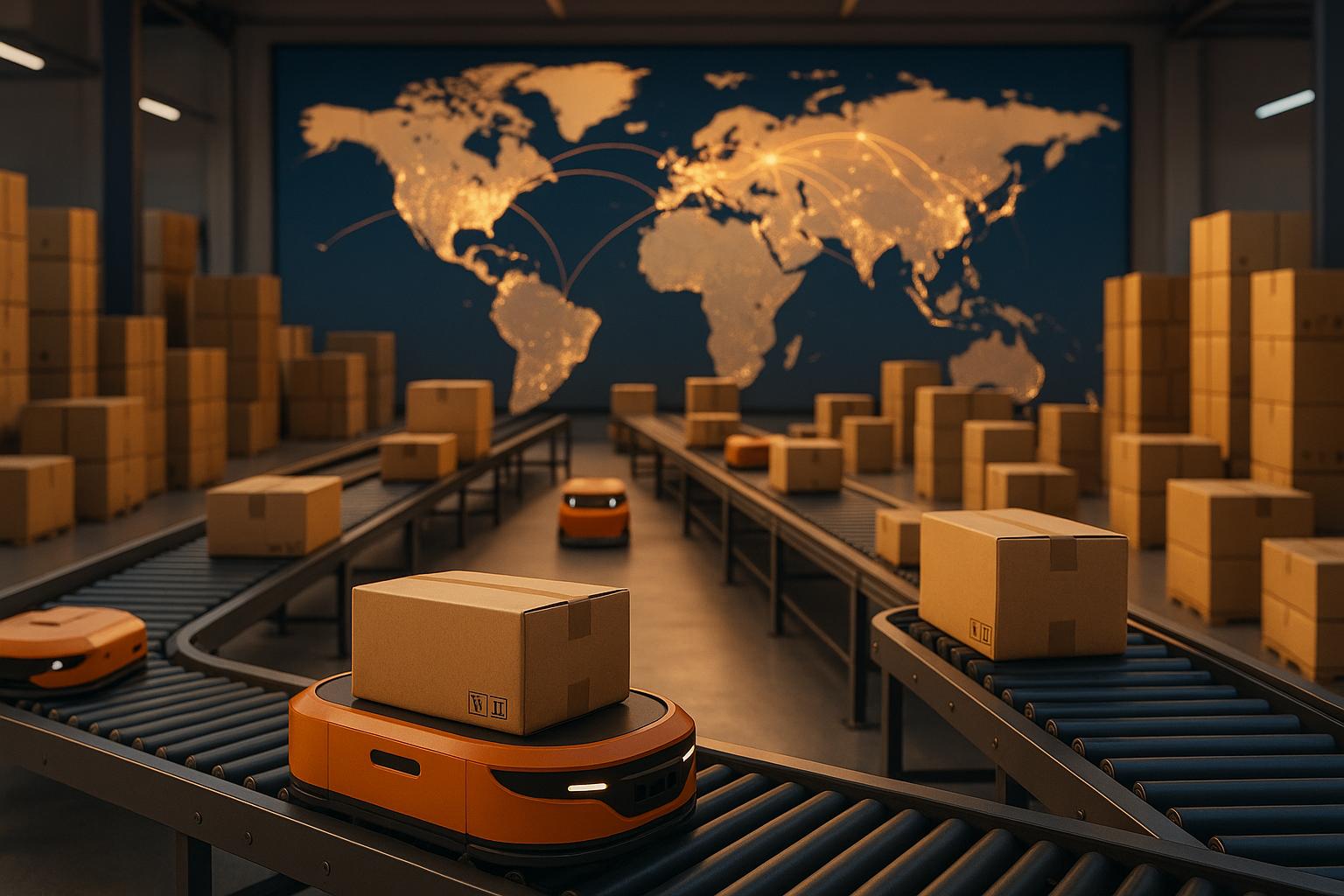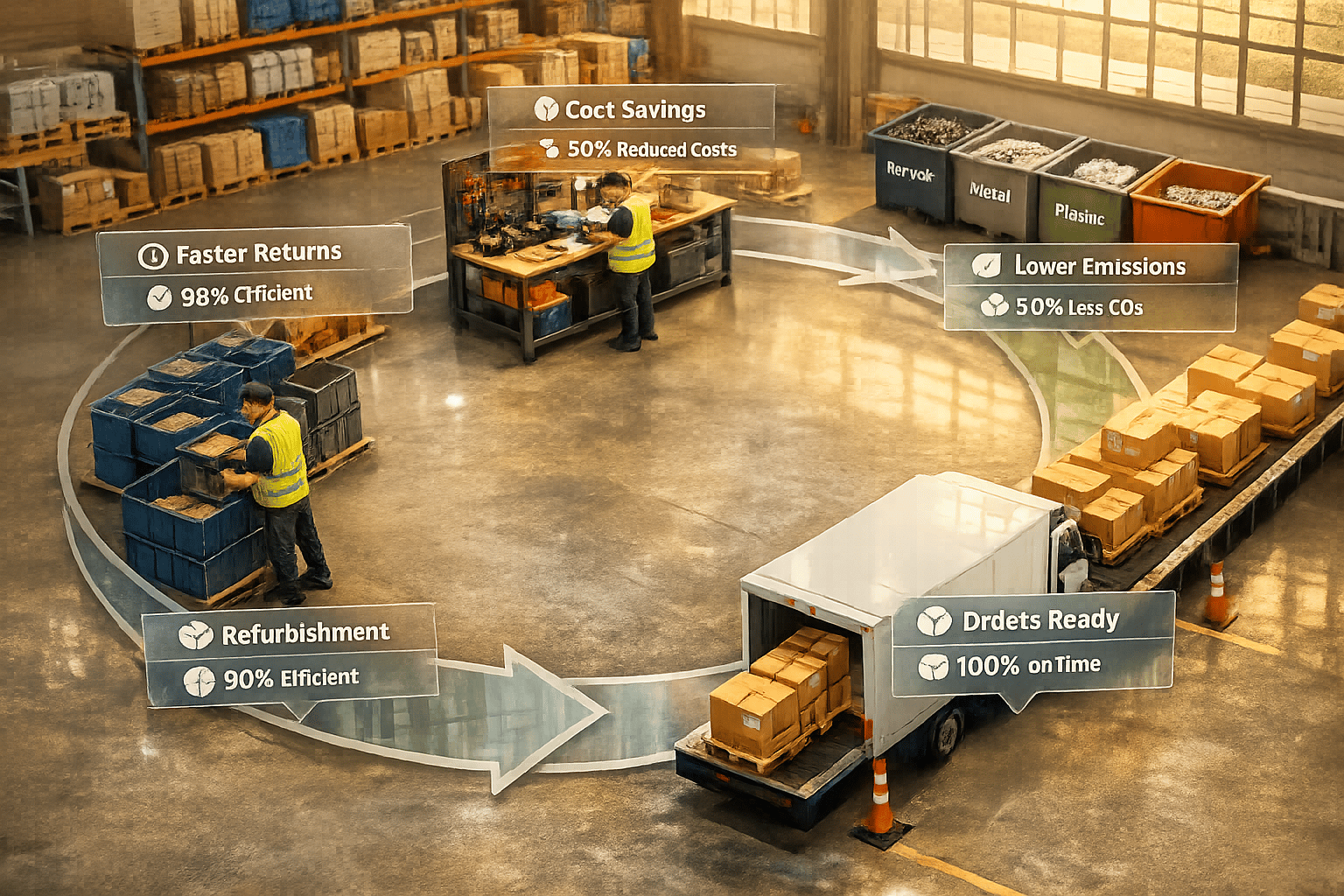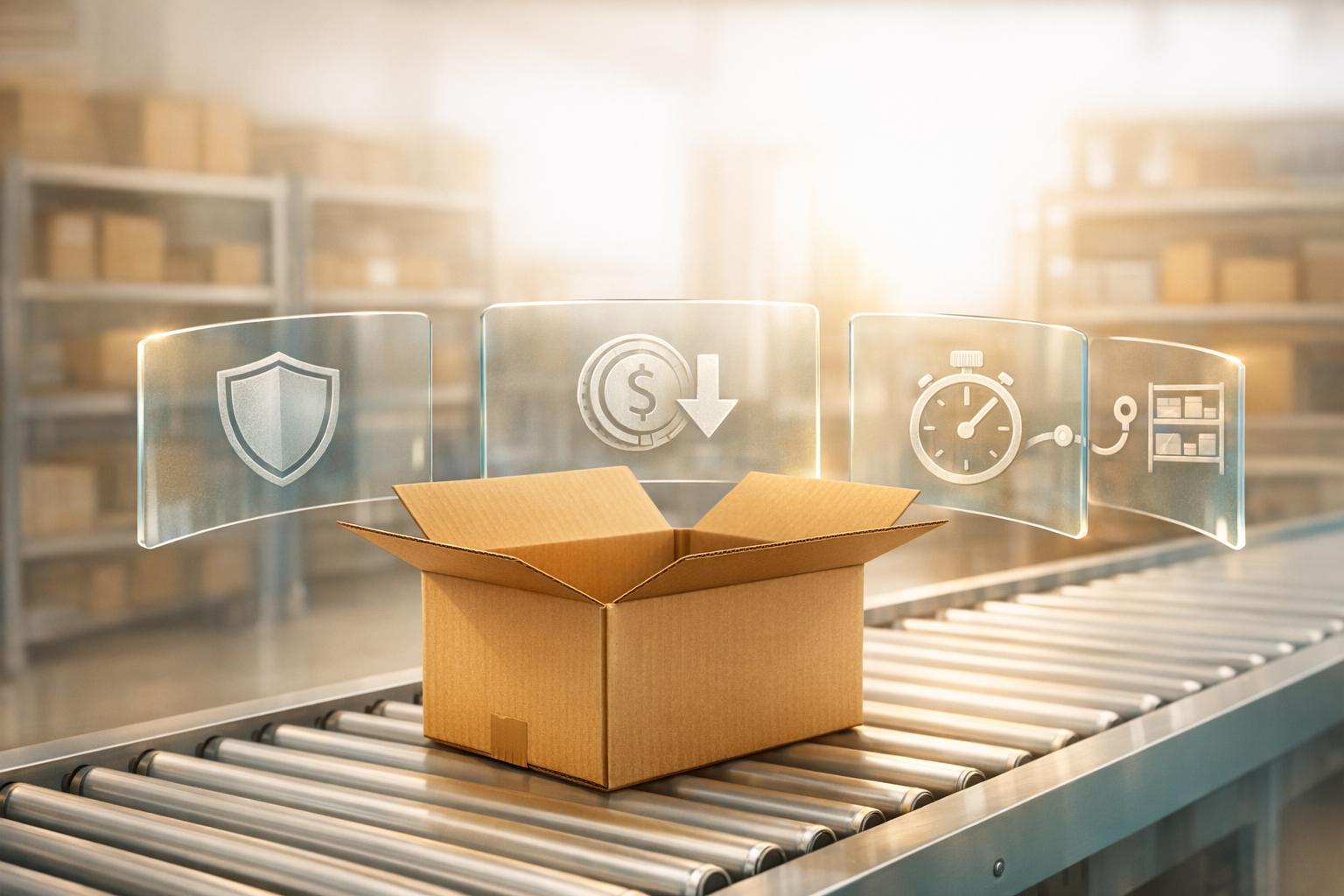How AI Is Transforming E‑commerce Shipping and Logistics

The convergence of artificial intelligence (AI) and logistics is reshaping global e-commerce, addressing long-standing inefficiencies while creating opportunities for faster, smarter delivery solutions. In a recent episode of the AI Truebaser podcast, Everest, the co-founder and CEO of Ibundle, shared his insights on how AI is transforming the shipping landscape for e-commerce companies. With a decade of experience in logistics and a mission to bridge the gap between old-fashioned shipping methods and modern e-commerce needs, Everest offers a compelling vision of the future of logistics.
This article explores the key points of the discussion and delves deeper into how AI is driving change, solving critical problems, and preparing companies for a rapidly evolving marketplace.
The Problem: A Clash of Two Worlds
As e-commerce has grown into a trillion-dollar industry, it has outpaced the traditional logistics sector. According to Everest, this is largely because the two worlds are fundamentally mismatched:
- E-commerce: Highly dynamic, software-driven, and customer-centric, with consumers demanding transparency, speed, and convenience at every step of the delivery process.
- Logistics: Often manual, outdated, and inflexible, with global shipping plagued by inefficiencies, poor tracking, and a lack of scalability.
This disconnect creates major challenges for e-commerce brands trying to meet rising customer expectations. Consumers want accurate delivery times, clear costs (including duties and taxes), and real-time tracking - features the traditional shipping framework has struggled to provide.
"The logistics world is very old-fashioned", Everest explains. "It’s manual and complex, and it doesn’t align with the modern e-commerce ecosystem."
The Ibundle Solution: Filling the Gap with AI

Enter Ibundle, a logistics startup co-founded by Everest to address this gap. At its core, Ibundle aims to streamline cross-border shipping for e-commerce businesses, offering a scalable, tech-driven solution that delivers efficiency and transparency. Here’s how the company is tackling the challenges:
1. Bridging the Cost Gap
Shipping options are traditionally limited to two extremes:
- Postal Services: Cheap but slow and often unreliable.
- Express Services: Fast and reliable but very expensive (e.g., DHL, UPS, FedEx).
Ibundle positions itself as a middle layer by offering an optimized, cost-effective alternative to these extremes. Using AI, the company identifies the best shipping route for each package, balancing affordability and delivery speed.
2. End-to-End Visibility
Transparency is critical for modern e-commerce shipping. Ibundle’s platform provides real-time updates, tracking, and insights into duties and taxes, ensuring both businesses and customers know exactly where their packages are and what to expect.
3. Learning from Data
AI powers Ibundle’s ability to learn and adapt over time. By analyzing data on routes, delivery success rates, and customer preferences, the system continuously refines its algorithms. For instance, if a specific shipping journey repeatedly fails, the platform ensures it’s no longer used.
"We’ve built a full brain behind the scenes", Everest notes, emphasizing the importance of AI in decision-making. "The system learns from every package journey."
4. Global Scalability
Ibundle’s reach is truly global, serving markets in the US, UK, Israel, China, Indonesia, Germany, Canada, and Australia. This scalability ensures that the platform can cater to diverse regulatory environments and customer demands.
The Role of AI in Modern Logistics
AI is central to Ibundle’s model and is poised to disrupt the broader logistics industry in several key ways:
- Operational Efficiency: Automating manual processes like package routing, tariff calculations, and support inquiries reduces the need for human intervention while increasing speed.
- Customer Experience: AI-driven tools provide more accurate delivery estimates, improving customer satisfaction.
- Adaptability: Shipping regulations and duties constantly change. AI enables companies like Ibundle to stay up-to-date and quickly implement new policies.
Everest also highlights the potential of "agents of AI", autonomous systems that handle tasks such as customer support. These tools could drastically reduce the need for additional staff while maintaining high service levels.
Challenges in the Industry
Despite its potential, the logistics industry faces significant obstacles, many of which Everest and his team must navigate. These include:
1. Constantly Changing Regulations
From shifting tariffs to evolving duties and taxes, regulations can create uncertainty for e-commerce brands. For example, the Trump-era tariffs forced Ibundle to quickly adjust its operations to accommodate new rules. Everest describes this as one of the biggest challenges: "It’s hard when you don’t have certainty."
2. Economic Pressures
The global supply chain is subject to economic fluctuations, bankruptcies, and other external shocks. These factors demand flexibility and adaptability from logistics providers.
3. Fundraising Hurdles
As a startup, Ibundle also grapples with the time-consuming process of raising capital. Everest acknowledges that while necessary, fundraising can divert attention from core business activities. "I’d rather focus on customers and innovation than spending 80% of my time pitching to VCs", he says.
Sustainable Growth: A Smarter Approach for Startups
One of Everest’s key takeaways for other startup founders is the importance of sustainable growth. He advises against the traditional "hockey stick" growth curve, where rapid scaling is prioritized over profitability. Instead, he advocates for a methodical, business-first approach:
- Focus on Revenue: Move toward profitability or break-even as quickly as possible.
- Deliver Real Value: Ensure your product solves core problems for customers, turning them into advocates for your brand.
- Avoid Burnout: Rapid scaling often requires massive investment and can lead to unsustainable operations.
"Startups should look for how they can be sustainable within a short amount of time", he says. "It’s a business at the end of the day, not just a vision."
The Future of AI and Logistics
Looking ahead, Everest sees AI continuing to redefine logistics, not only for Ibundle but for the entire industry. From reducing hiring needs to enabling smarter package tracking, AI’s potential is limitless. However, he stresses the importance of staying adaptable: "What’s next-generation today might be irrelevant tomorrow."
As global trade evolves, companies like Ibundle are positioning themselves to provide innovative, scalable solutions for e-commerce brands. By leveraging AI, they are addressing critical bottlenecks and preparing for a future where logistics is faster, smarter, and more efficient.
Key Takeaways
- Bridging the Gap: Ibundle is solving the disconnect between modern e-commerce and outdated logistics by creating a middle-tier solution that balances cost and speed.
- AI-Powered Logistics: Artificial intelligence enables smarter routing, real-time tracking, and continuous learning, improving both efficiency and customer satisfaction.
- Global Reach: Ibundle operates across multiple markets, adapting to regulatory changes and diverse customer needs.
- Sustainable Growth: Everest emphasizes building a business-first structure with a focus on revenue and profitability, avoiding over-reliance on external funding.
- The Impact of AI: AI has the potential to revolutionize logistics by automating processes, reducing costs, and enhancing adaptability.
Final Thoughts
E-commerce brands operating at scale need logistics partners that prioritize efficiency, transparency, and adaptability. Ibundle’s AI-driven approach offers a glimpse of what the future could look like - a world where shipping is no longer a bottleneck but a seamless part of the customer experience. For companies in the e-commerce space, adopting these innovations may prove to be the key to long-term growth and success in an ever-changing marketplace.
Source: "E-commerce & Logistics: A Clash of Worlds" - ibundle, YouTube, Aug 5, 2025 - https://www.youtube.com/watch?v=zNQlcu8f0AM
Use: Embedded for reference. Brief quotes used for commentary/review.
Related Blog Posts
Related Articles

How 3PLs Support Circular Supply Chain Models

Top Challenges in Returns AI Solves

